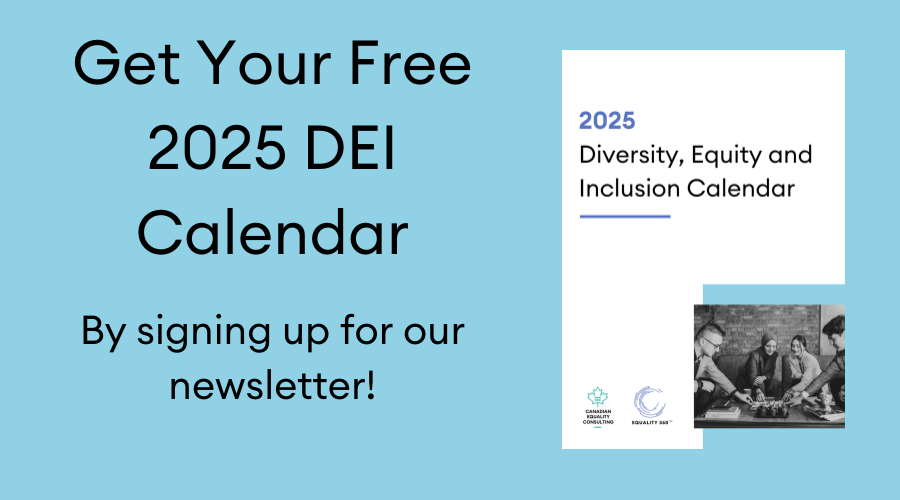
Antiracism resources to get you started
For many white Canadians, the struggle in understanding antiracism doesn’t lie in the why it’s important, it lies in understanding how to implement it in practice. Even if you have the best intentions to act as an ally in your workplace or create a more inclusive and diverse environment, learning the processes to do so while ensuring everyone is included, heard, and appropriately represented can seem daunting. For instance, you may have heard the term “white privilege,” but how is that concept embedded in the workplace? How can you include your employees of colour without tokenizing their representation? Or as Peggy McIntosh says in her foundational 1989 article, White Privilege: Unpacking the Invisible Knapsack, “Having described it, what will I do to lessen or end it?” Here is a quick list of accessible anti-racism resources to get you started:
Public Service Alliance of Canada
Focusing on the role of antiracism in the workplace, the Public Service Alliance of Canada (PSAC) has compiled a number of resources, including webinars on anti-racism, general resources, resources specific to decolonization, and information on Indigenous issues in Canada. In particular, their Antiracism for White People webpage has a number of useful foundational resources that are thoughtfully curated.
White Privilege: Unpacking the Invisible Knapsack
This foundational 1989 article by Peggy McIntosh not only remains relevant but integral, to an understanding of white privilege, social power structures and antiracism. Additionally, McIntosh has included facilitation notes and relevant activities in recent updates of her articles, which are helpful for facilitation as well.
Code of Ethics for White Antiracists
This article by the Good Men Project presents 10 concrete and accessible ways for white antiracists to reflect on their work and how to become better at anti-racism. Originally created by Inspire Justice, the Good Men Project worked with them to consult this document with a multiracial, intergenerational group of activists, organizers, educators, and artists to include diverse input and ensure the relevance of this accountability work.
University of Alberta, free online course on Indigenous Canada
This free online course, presented by the Faculty of Native Studies at the University of Alberta, is a great primer on the history of Canadian indigenous peoples, the impact of discriminatory policies, and the future of indigenous/non-indigenous relationships. It’s a useful resource for people who are new to these issues and wishing to upgrade their professional skill sets.
Black Lives Matter: Anti-Racism Resources for Social Workers and Therapists
This excellent webpage provides a collection of Canada-specific links to antiracism and Black Lives Matter online resources, including webinars, toolkits, YouTube videos, movies, podcasts, self-care resources, and information on relevant funds to support people of colour. There are also self-care and support resources specifically for people of colour and persons working anti-racism, which is incredibly valuable for workers in this high-impact, high-stress fields.
Indigenous Ally Toolkit
Starting off with the phrase “So you want to be an ally,” this excellent toolkit by the Montreal Urban Aboriginal Community Strategy Network provides some key starting pieces to indigenous allyship, including definitions, ways to start your learnings, and links to relevant resources.
Decolonize First
Decolonize First is a workbook by Ta7talíya Michelle Nahanee featuring pages of process, prompts and links to resources to support your decolonizing journey. Focussed on providing concrete activities for self-reflection and action, particularly on Indigenous issues, this workbook is a useful activist-created resource for aspiring antiracism advocates.
The New York Times 1619 Podcast
The New York Times (NYT) 1619 podcast is an incredible production that, while quite America-centric in its historical scope, presents a thorough summary of how integral slavery was to the creation of modern North America. Hosted by Nikole Hannah-Jones, which examines the long shadow of American slavery over the course of five episodes.
Cassey X Visual Policy Analysis
This site is a useful resource summarizing current antiracist activism in Canada, primarily in anti-indigenous racism, through visual policy analysis. This tool is particularly handy for visual learners and younger learners because it presents a visual summary of important antiracist work.
Being an Upstander: Racism
This practical guide provides concrete information on how to interject when you see cases of discrimination, racism, and inequality in your everyday life. It includes what to say, how to respond, and additional resources on how to incorporate anti-racism into your workplace and start useful discussions.
Financial Literacy in the Black Community
This guide provides information on the racial wealth gap in America and how education and financial literacy can help close the gap. The guide goes into the impact that this education gap has on the Black community, socioeconomic and cultural barriers and the role of Black financial advisors.
–
For bespoke diversity and equality guidance, contact Canadian Equality Consulting and begin a discussion on how to make your workplace more responsive to the needs of your diverse employees.

